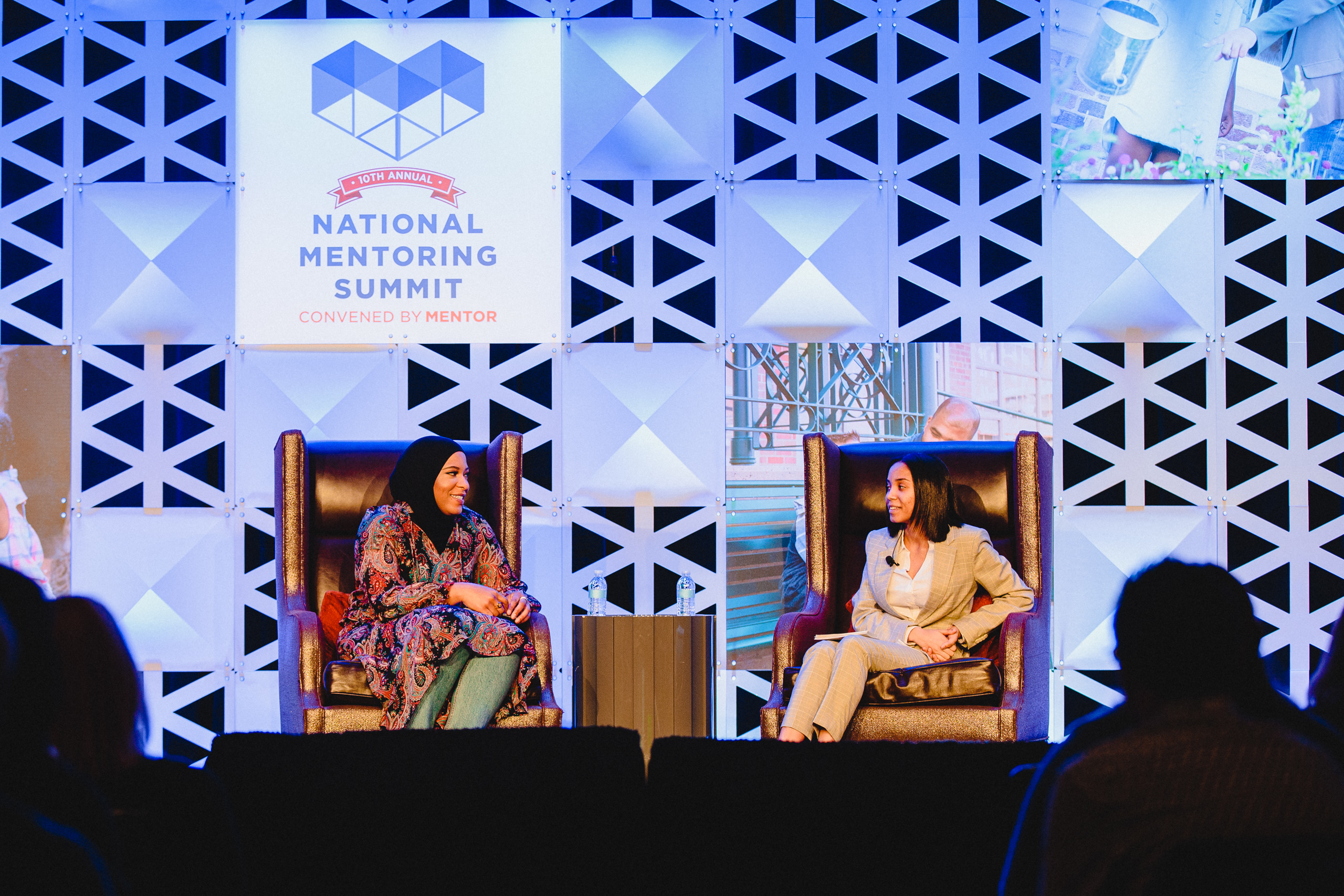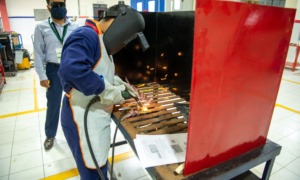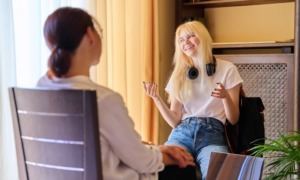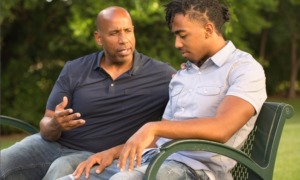
Olympic medalist Ibtihaj Muhammad (left) is interviewed by Mia Prince, a Boston high school student, during the National Mentoring Summit. | Stan Murzyn
WASHINGTON — Olympic medalist Ibtihaj Muhammad would not be where she is today were it not for her mentor, also an Olympic medalist in fencing.
As a teen, Muhammad was often the only African American — and the only one in hijab — at fencing competitions in and around her hometown of Maplewood, N.J. She was “othered” in the predominantly white sport, she said in a recent interview — a form of discrimination that continued as she advanced through the ranks.
When her national team lost a major match, her coach was especially critical of her performance during video review sessions, Muhammad said. She was also left off important emails, not informed of details about practices and made to feel like an outcast on Team USA. “They did not want me there, and they made it very clear they didn’t want me there.”
Like endless jabs, the microaggressions were intended to drive her from the sport.
Fortunately, her mentor — Peter Westbrook, a bronze medalist in the 1984 games and head of a nonprofit fencing organization for youth from underserved communities — encouraged her to deflect them. The first African American to medal in the sport, Westbrook used the lessons he learned during his Olympic journey years ago to prod Muhammad to continue hers.
He was a “guiding force that has helped me see what’s possible,” Muhammad said — a story she told last month at a national mentoring conference here.
Westbrook provided the kind of ongoing holistic support that is the hallmark of strong mentoring, helping her physically, emotionally and spiritually, Muhammad said. He gave her tactical fencing lessons, counseled her using a faith-based approach and helped her envision herself as a professional athlete. He also helped fund her Olympic dreams through his foundation.
She learned to cast aside the “white noise” of mistreatment and to believe in herself.
“I feel like you have to love yourself, have to appreciate yourself, you have to know you’re capable,” she said. “That’s such an important message for kids today. We often look for validation from other people. I think the validation you need has to come from within first.”
Westbrook wasn’t Muhammad’s only mentor. She also credits Keeth Smart, who won a silver medal in the team saber competition in the 2008 Olympic games in Beijing. Also African American, Smart counseled Muhammad on everything from footwork to diet to cross-training.
She sought to “recreate his blueprint” for victory, she said, and the plan worked. In 2016, Muhammad became the first U.S. woman to compete in the Olympic games in hijab and the first female Muslim American to win an Olympic medal. In 2017, Mattel unveiled its first hijabi Barbie, which was modeled after Muhammad’s likeness.
And in 2018 Muhammad — who has also launched her own line of modest clothing — released a memoir about her fight for “an unlikely American dream.”
As an activist, entrepreneur, author and speaker, Muhammad is now paying it forward.
As an instructor at the Westbrook Foundation, she has helped dozens of underserved kids master the sport of fencing. And she’s working closely with Isis Washington, a fencer and volunteer coach at the Westbrook Foundation who Muhammad says is “on track” to qualify for the 2020 Olympic games in Tokyo this summer.
“When we have the opportunity to give our youth kind of a lens into what’s possible for them, it can make a huge difference,” she said.
“I don’t know where I would be in sport without having these really strong mentors in my life.”































